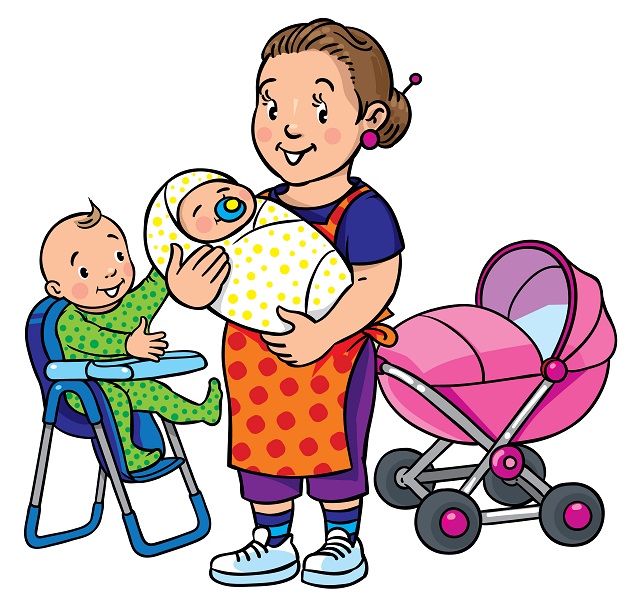Understanding and Managing Fatigue During Pregnancy
Fatigue is one of the most common and earliest symptoms of pregnancy. For many expectant mothers, it begins in the first trimester and may return in the third trimester. Understanding the causes of pregnancy fatigue and learning how to manage it can help improve your well-being throughout your pregnancy journey.
Why Do Pregnant Women Feel So Tired?
Fatigue during pregnancy is typically a result of the many physical and hormonal changes taking place in the body. Here's a breakdown of the key contributing factors:
- Hormonal changes: Increased levels of the hormone progesterone have a sedative effect, making you feel more tired than usual.
- Increased metabolic demands: Your body is working hard to support the developing fetus, which uses up more energy.
- Changes in blood pressure and blood sugar: Blood pressure tends to drop in early pregnancy, and blood sugar levels may fluctuate, both of which can contribute to feelings of fatigue.
- Emotional and psychological adjustments: Anxiety or excitement about pregnancy can also lead to poor sleep quality or mental exhaustion.
When Is Fatigue Most Common?
Fatigue can occur at any stage of pregnancy, but it's particularly common during:
First Trimester
Hormonal surges, especially of progesterone, combined with emotional stress and physical changes (like nausea or frequent urination), can significantly drain your energy levels.
Second Trimester
Many women experience a burst of energy during the second trimester as the body adjusts to pregnancy. However, this isn't universal—some may continue to feel tired.
Third Trimester
As the baby grows and the body becomes heavier, physical discomfort, disrupted sleep, and frequent nighttime urination often bring fatigue back with intensity.
How to Manage Pregnancy Fatigue
Although some level of fatigue is inevitable, there are several ways to reduce its severity and support your energy levels:
- Get plenty of rest: Prioritize sleep and allow time for naps when needed. Go to bed earlier and create a comfortable sleep environment.
- Eat balanced, nutrient-rich meals: A diet rich in iron, protein, and complex carbohydrates can support energy levels. Avoid skipping meals, especially breakfast.
- Stay hydrated: Dehydration can worsen fatigue. Drink enough water throughout the day, even if it increases urination.
- Engage in gentle physical activity: Light exercises such as walking, stretching, or prenatal yoga can help combat fatigue and boost mood.
- Manage stress: Practice relaxation techniques such as deep breathing, meditation, or prenatal massages to calm the mind and body.
When to Be Concerned
While fatigue is usually normal, you should consult your doctor if:
- Your tiredness is severe and doesn't improve with rest
- You feel dizzy, faint, or out of breath
- You suspect you might have anemia or low thyroid function
- You're struggling with depression or anxiety
Fatigue may sometimes be a sign of an underlying medical issue such as iron-deficiency anemia, gestational diabetes, or thyroid problems, which are treatable with proper medical support.
Real Stories from Expecting Mothers in Singapore
Many mothers in Singapore report feeling extreme tiredness during their daily commutes or while working long hours. Some opt for flexi-work arrangements or use maternity leave early to rest, while others lean on confinement nannies or family members to help with chores and meals.
Tips for Partners and Families
If you're supporting a pregnant partner or family member, here are ways you can help:
- Offer to do household tasks so she can rest more.
- Encourage her to eat well and stay hydrated.
- Accompany her on walks or help her attend prenatal appointments.
- Be patient—emotional support makes a big difference.
Conclusion
Fatigue is a normal part of pregnancy, especially in the first and third trimesters. By listening to your body and making rest and nutrition a priority, you can better manage this discomfort. Always talk to your doctor if the fatigue becomes overwhelming or persistent. Remember, caring for yourself means caring for your growing baby too.
Looking for more pregnancy tips? Stay tuned for our full series on pregnancy discomforts and how to manage them effectively.
It takes a village to raise a child !
Join our Facebook Group For 2025 SG Mummies or Facebook Group For 2026 SG Mummies
2024 SG Mummies Whatsapp Group by EDD Month or 2025 SG Mummies Whatsapp Group By EDD Month








